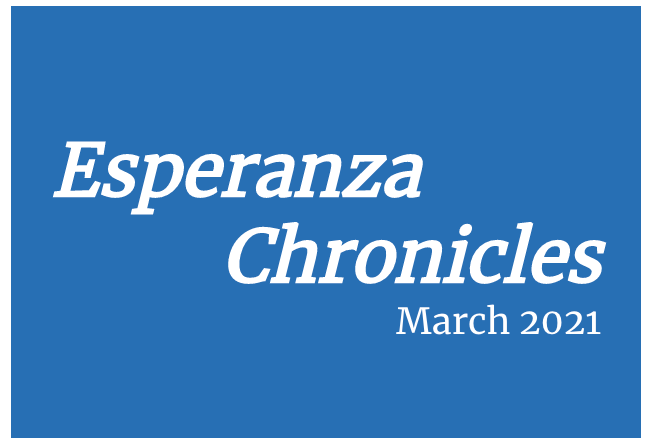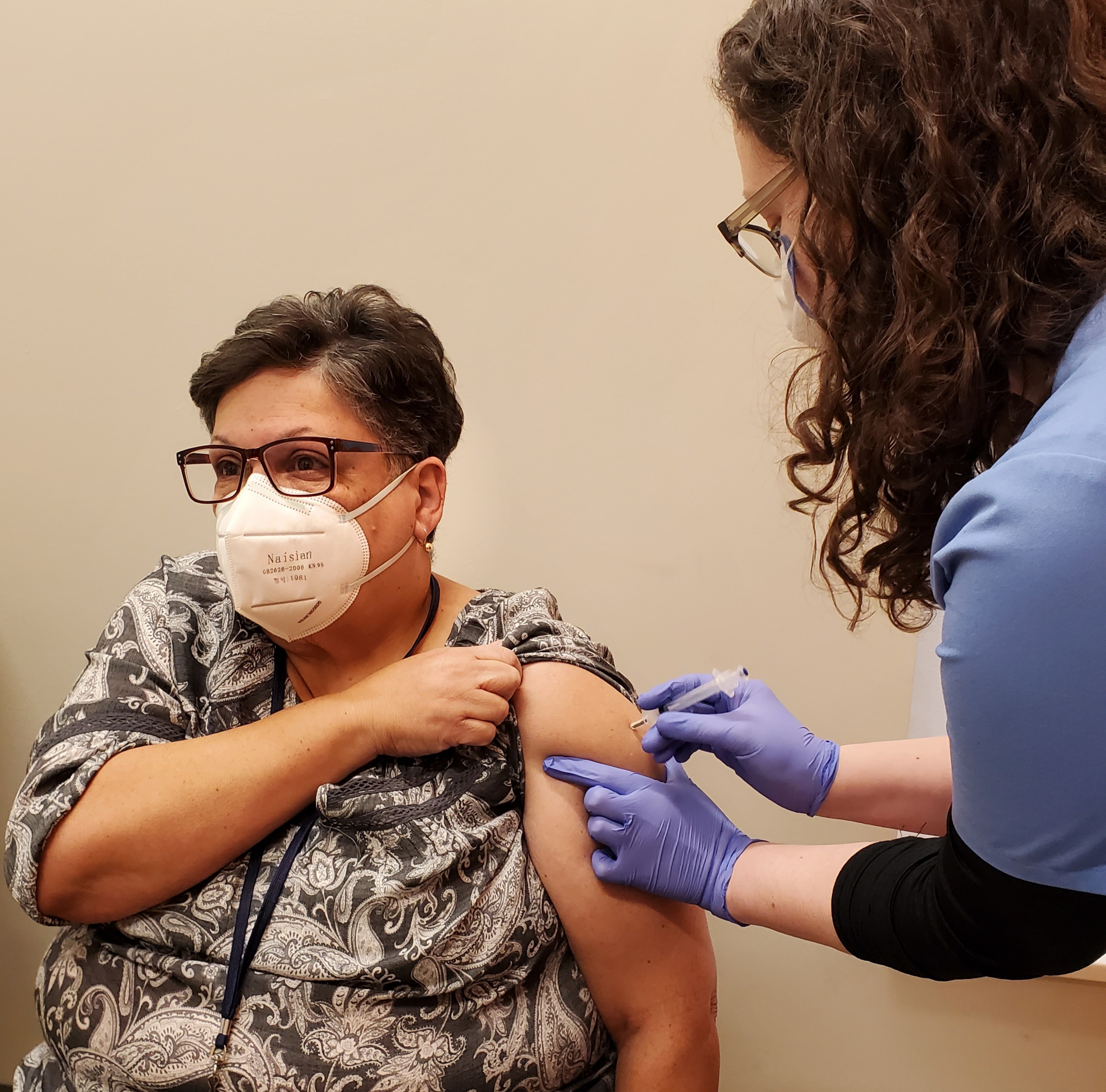WELCOME
March is National Nutrition Month and celebrates our excellent dietitians who have worked diligently throughout the pandemic. Here are some helpful nutrition tips shared by our team of dietitians in their National Nutrition Month newsletter.
Learn more about how you can fully enjoy your food and other informative tips to maintain your health here!
Please visit our Esperanza Health Center News page on our website to read previous issues of our newsletter.
Esperanza Health Center
Follow us on social media!
Interview With Mrs. Jill Van Balen, EHC Volunteer Chaplain
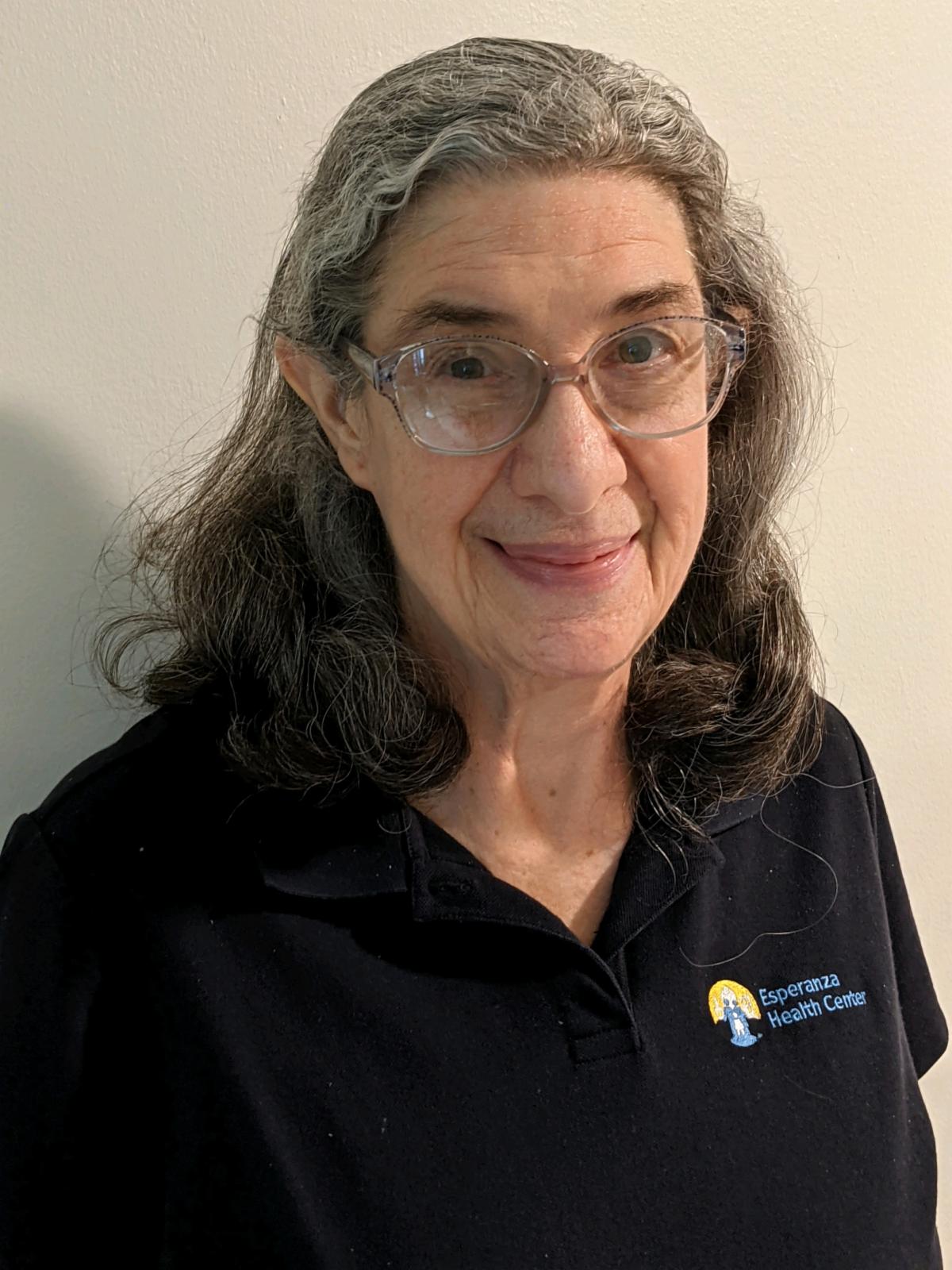
For the past several years, a dedicated group of Volunteer Chaplains has ministered to our patients, their families, and to Esperanza’s staff at all three of our sites.
Jill Van Balen was part of our Fall 2017 Volunteer Chaplain training class (see class photo, below). After completing her training, she immediately started to visit Esperanza’s patients in Temple University Hospital, going once a week. When COVID hit last year, she willingly shifted to reaching our patients hospitalized at Temple – by phone! She regularly connects with eight to twelve patients, or their families, each week, and since last summer has served hundreds of patients.
Can you tell us about your background?
I was born and raised in Delaware County, Pennsylvania. When I went to graduate school at North Carolina State, I met my husband-to-be, Lucas, who was also there in graduate school for agriculture. He is from Venezuela, of Dutch immigrant parents who went there to flee World War II in Holland. I lived there for 40 years and all three of our sons were born and raised there. They eventually moved to the United States to study and work. Since about 1993, I was involved in kids’ evangelistic Bible studies and evangelism and discipleship in police and military prisons. That all started when I went to visit an inmate at the police prison with some missionaries, she invited two other women to the Bible study and they repented of their sins and became Christians. So, I asked the missionaries, “Who’s going to disciple these women?” They told me, “you are!” I did this for years and eventually sensed God leading us to join one of our sons who is living in Philadelphia.
When we moved to the U.S., I knew I wanted to serve the Lord somehow. I thought it would be using the kids’ Bible materials I had brought from Venezuela. But then a neighbor told me that Esperanza Health Center was recruiting Volunteer Chaplains – and that was it!
Is there a particular patient encounter that you’d like to describe?
In one particular call in December, I spoke with the patient’s adult daughter who answered the phone. She is bilingual but prefers English. She went on to tell me that their mother had taken them to church when they were young but then her mother died so they stopped going. Unfortunately right now her father can’t go to dialysis – which he needs – because of COVID. I told her about how my mother died when I was 9. As it turns out, she has a 9-year-old daughter and wants to put her in a Christian school. So I prayed for her, and gave her the link to an on-line service, and told her my testimony about the need to raise children in the church. She was extremely thankful for the call and asked if we could help her find a local bilingual church, and we followed up to help her find a church.
How would you describe your experience as a Volunteer Chaplain so far?
Can you tell us about your background?
I was born and raised in Delaware County, Pennsylvania. When I went to graduate school at North Carolina State, I met my husband-to-be, Lucas, who was also there in graduate school for agriculture. He is from Venezuela, of Dutch immigrant parents who went there to flee World War II in Holland. I lived there for 40 years and all three of our sons were born and raised there. They eventually moved to the United States to study and work. Since about 1993, I was involved in kids’ evangelistic Bible studies and evangelism and discipleship in police and military prisons. That all started when I went to visit an inmate at the police prison with some missionaries, she invited two other women to the Bible study and they repented of their sins and became Christians. So, I asked the missionaries, “Who’s going to disciple these women?” They told me, “you are!” I did this for years and eventually sensed God leading us to join one of our sons who is living in Philadelphia.
When we moved to the U.S., I knew I wanted to serve the Lord somehow. I thought it would be using the kids’ Bible materials I had brought from Venezuela. But then a neighbor told me that Esperanza Health Center was recruiting Volunteer Chaplains – and that was it!
Is there a particular patient encounter that you’d like to describe?
In one particular call in December, I spoke with the patient’s adult daughter who answered the phone. She is bilingual but prefers English. She went on to tell me that their mother had taken them to church when they were young but then her mother died so they stopped going. Unfortunately right now her father can’t go to dialysis – which he needs – because of COVID. I told her about how my mother died when I was 9. As it turns out, she has a 9-year-old daughter and wants to put her in a Christian school. So I prayed for her, and gave her the link to an on-line service, and told her my testimony about the need to raise children in the church. She was extremely thankful for the call and asked if we could help her find a local bilingual church, and we followed up to help her find a church.
How would you describe your experience as a Volunteer Chaplain so far?
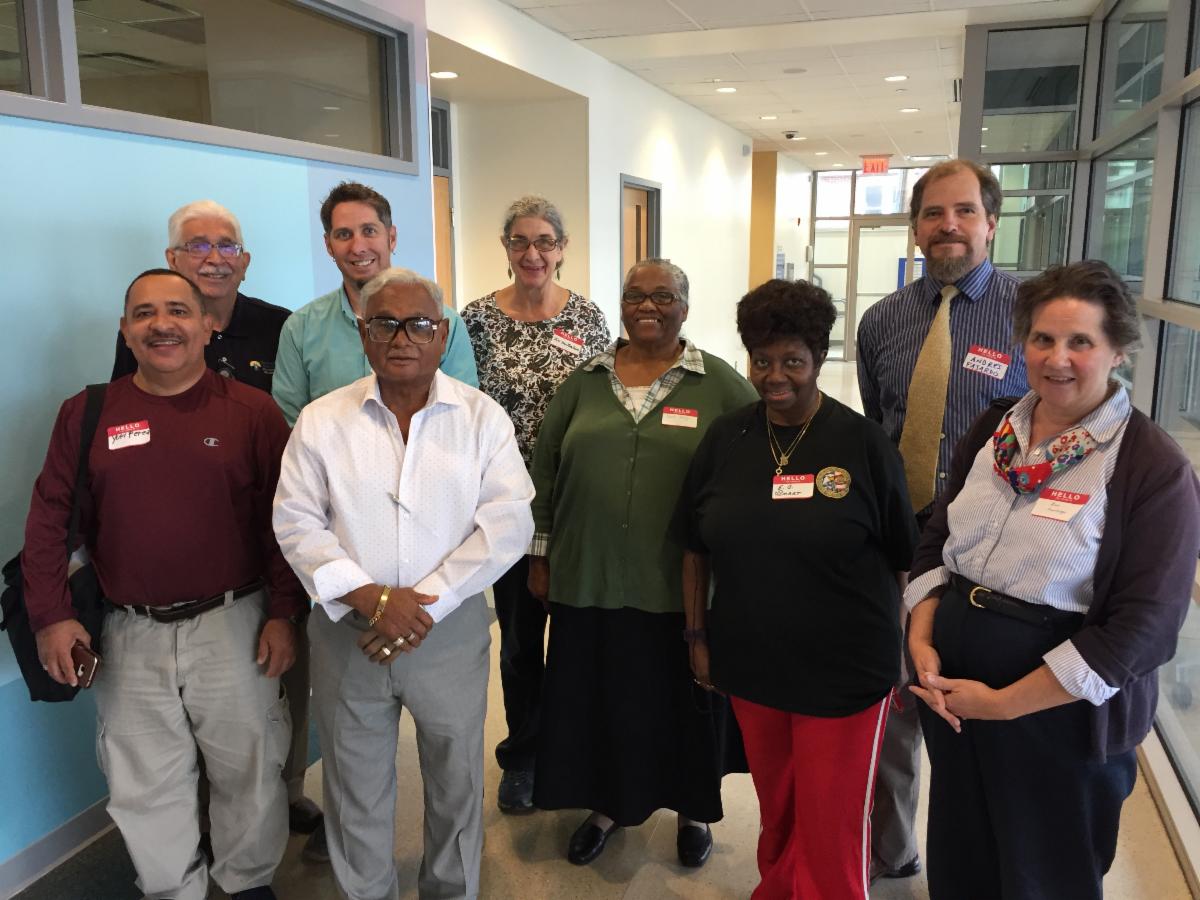
Group photo of EHC’s Volunteer Chaplains–Class of 2017.
COVID-19 Vaccine Update
Esperanza Health Center continues to administer COVID-19 vaccines to our patients as well as some community members, based on the most current City of Philadelphia Department of Health guidelines for who is eligible to receive vaccines. We’re thankful for our several new vaccine team staff members who have joined us recently, and for the many other staff who have been working hard to provide vaccines to our patients and community. Additional updates will be provided in future Esperanza Chronicles eNews editions – thanks for your prayers for our staff in this ongoing effort.
Reflections on Providing Nutrition Care During a Pandemic
by Holly Barbee, RD, LDN
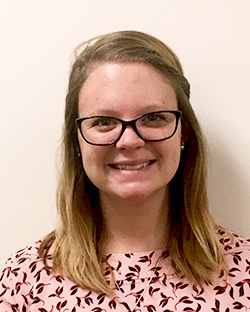
Although meeting patients where they are is common practice in the nutrition world, it took on a new meaning in March 2020. Once the coronavirus hit Philadelphia and began to work from home, Esperanza’s dietitians had to figure out how we would still provide quality care to our patients working remotely. Our job ranged from the standard care of an outpatient dietitian to keeping our patients healthy enough to stay out of the hospital. We worked hard to keep up with our high-risk patients to help control their blood sugar levels, discuss a heart-healthy diet, or just provide a listening ear for those who had a hard time coping with all the changes brought on by the pandemic. We learned a lot about God’s grace, how to be patient with others and to be thankful for those around us and their continued health.
Esperanza Health Center and Jefferson Awarded Grant to Promote Digital Literacy in the Latino Community
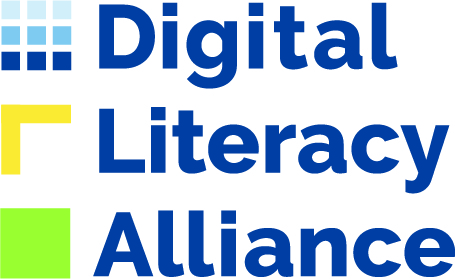
 Earlier this month, Esperanza Health Center and Thomas Jefferson University were the recipients of a two-year, $50,000 grant award from The Mayor’s Fund for Philadelphia through their Digital Literacy Alliance initiative. Staff members from our Department of Community Health and Wellness will collaborate with a team from Jefferson, led by Kristin Rising, MD, MSHP and Brooke Worster, MD, FACP, to identify and address the key barriers to digital readiness among the Latino population served by EHC. A key outcome will be to create a digital literacy toolkit that will help community members more effectively engage with digital resources, and will help healthcare providers to address barriers and opportunities in digital healthcare with their patients, in an effort to reduce health disparities.
Earlier this month, Esperanza Health Center and Thomas Jefferson University were the recipients of a two-year, $50,000 grant award from The Mayor’s Fund for Philadelphia through their Digital Literacy Alliance initiative. Staff members from our Department of Community Health and Wellness will collaborate with a team from Jefferson, led by Kristin Rising, MD, MSHP and Brooke Worster, MD, FACP, to identify and address the key barriers to digital readiness among the Latino population served by EHC. A key outcome will be to create a digital literacy toolkit that will help community members more effectively engage with digital resources, and will help healthcare providers to address barriers and opportunities in digital healthcare with their patients, in an effort to reduce health disparities.

